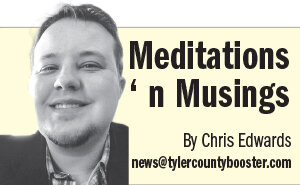The Unfolding Saga of Donald Trump: A Connoisseur of Conspiracy Theories
Donald John Trump is a figure whose life story reads like a surreal novel, one that could easily perplex even the most imaginative of authors, such as Kurt Vonnegut. His multifaceted identity encompasses roles as a former U.S. President, a real estate mogul, a television star, a golf aficionado, and even a McDonald’s pitchman. Each of these titles contributes to a persona that is larger than life, yet it is his recent foray into the realm of conspiracy theories that has captured the public’s attention in a new and unsettling way.
The Debate That Sparked Controversy
In a recent debate against the current Vice President and his Democratic opponent, Trump introduced a series of bizarre claims that seemed to stray far from the pressing issues facing the nation. Among these were allegations about taxpayer-funded “transgender operations on illegal aliens in prison” and even more outlandish assertions regarding Haitian migrants purportedly stealing and consuming pets in Springfield, Ohio. Such statements not only raised eyebrows but also ignited discussions across social media platforms and news outlets, making them the talk of the proverbial water cooler the following day.
The Comfort of Routine Amidst Chaos
As I settled into my usual Wednesday morning routine, my feline companions were acutely aware of the tension in the air. My home office, a sanctuary for my creative endeavors, became a refuge for my cats, who seemed to sense the unease stemming from the previous night’s debate. I reassured them that they were safe from any imaginary threats, whether they originated from Haiti or elsewhere. My orange tabby, Wee, and my sweet Siamese, Lefty, took it upon themselves to guard our chonky boy, Scooter, as I attempted to process the absurdity of the situation.
The Allure of Conspiracy Theories
Conspiracy theories have a peculiar appeal that can be both fascinating and troubling. While many argue that these theories are harmful to those who propagate them and those who believe in them, there exists a psychological perspective suggesting that they can serve a purpose. Research by Jan-Willem van Prooijen indicates that conspiracy theories can provide individuals with a sense of meaning and purpose, particularly for those with fragile egos. By framing themselves and their groups as significant players in a grand narrative, believers find solace in their shared convictions.
The Bizarre and the Plausible
A friend of mine often quips, “the more bizarre it sounds, the more likely it is to be true.” As a pragmatist with a penchant for creativity, I can appreciate the humor in such statements, though I rarely find conspiracy theories to be credible. My experiences in the news business have made me a magnet for outlandish claims. I once encountered a man who insisted that the Amish were secretly building rockets to mine uranium on the moon, a notion that seems at odds with their values. Another neighbor claimed that former President Barack Obama was contaminating the water supply with mind-control drugs. While these stories elicit laughter, the stakes become alarmingly high when a presidential candidate spreads baseless theories that incite fear and violence.
The Dangers of Misinformation
The ramifications of Trump’s recent statements are not trivial. When a candidate for the highest office in the land propagates unfounded theories, it can lead to real-world consequences, including death threats and bomb scares directed at communities that are often already marginalized. It is irresponsible for any politician to engage in such rhetoric, especially when it distracts from the pressing issues that Americans face daily. The focus should be on constructive dialogue and solutions rather than sensationalism and fear-mongering.
A Call for Responsibility
Trump’s penchant for conspiracy theories raises questions about the responsibility of political leaders. Associating with figures known for their outlandish claims, such as Laura Loomer, does little to bolster a campaign’s credibility. It is imperative for political advisers to reconsider their strategies and tone, steering away from divisive and bizarre narratives that do not serve the public interest.
A Different Approach
In contrast, Vice President Kamala Harris’s debate performance, while not without its flaws, offered a glimpse of a more unifying approach. Despite her lack of specific solutions, she emphasized shared values and commonalities among Americans, steering clear of the conspiratorial rhetoric that has become all too common. In a time when many seek stability and hope for the future, it is crucial for leaders to foster a sense of community rather than division.
The Desire for Normalcy
Ultimately, most Americans yearn for a world free from constant dread and fear-mongering. They wish to raise their children and grandchildren in an environment that is hopeful and forward-looking. The allure of conspiracy theories may provide a temporary escape for some, but the reality is that the nation faces real challenges that require thoughtful discussion and action. In this complex landscape, the focus must shift back to the issues that truly matter, fostering a dialogue that promotes understanding and progress rather than paranoia and division.
